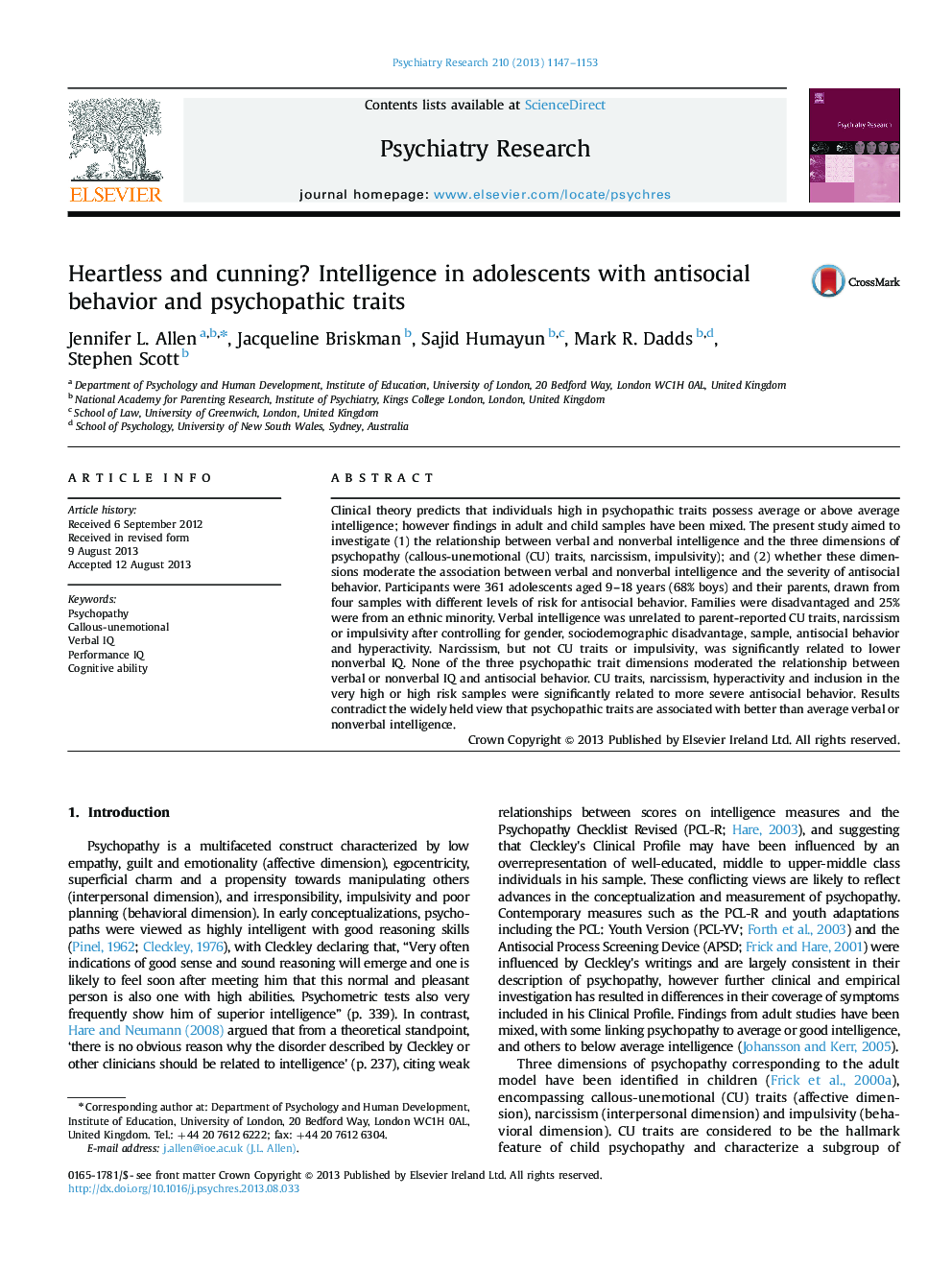| Article ID | Journal | Published Year | Pages | File Type |
|---|---|---|---|---|
| 6815645 | Psychiatry Research | 2013 | 7 Pages |
Abstract
Clinical theory predicts that individuals high in psychopathic traits possess average or above average intelligence; however findings in adult and child samples have been mixed. The present study aimed to investigate (1) the relationship between verbal and nonverbal intelligence and the three dimensions of psychopathy (callous-unemotional (CU) traits, narcissism, impulsivity); and (2) whether these dimensions moderate the association between verbal and nonverbal intelligence and the severity of antisocial behavior. Participants were 361 adolescents aged 9-18 years (68% boys) and their parents, drawn from four samples with different levels of risk for antisocial behavior. Families were disadvantaged and 25% were from an ethnic minority. Verbal intelligence was unrelated to parent-reported CU traits, narcissism or impulsivity after controlling for gender, sociodemographic disadvantage, sample, antisocial behavior and hyperactivity. Narcissism, but not CU traits or impulsivity, was significantly related to lower nonverbal IQ. None of the three psychopathic trait dimensions moderated the relationship between verbal or nonverbal IQ and antisocial behavior. CU traits, narcissism, hyperactivity and inclusion in the very high or high risk samples were significantly related to more severe antisocial behavior. Results contradict the widely held view that psychopathic traits are associated with better than average verbal or nonverbal intelligence.
Related Topics
Life Sciences
Neuroscience
Biological Psychiatry
Authors
Jennifer L. Allen, Jacqueline Briskman, Sajid Humayun, Mark R. Dadds, Stephen Scott,
